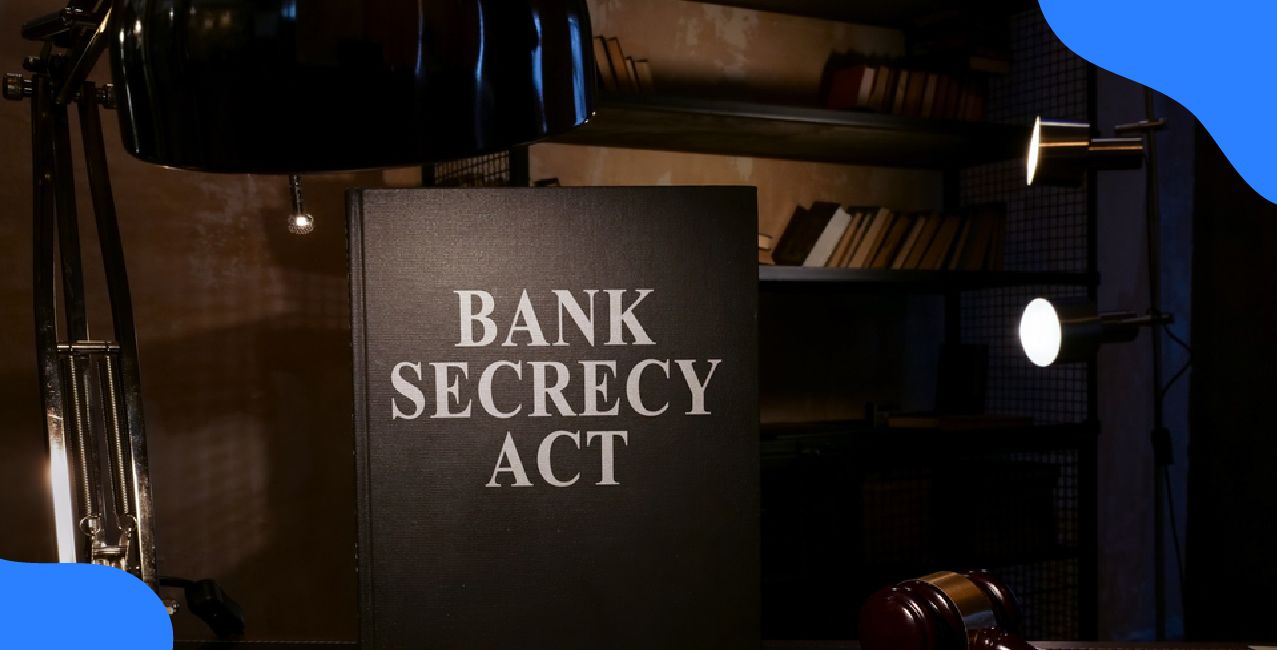What Happens If You Default On A Personal Loan? Legal & Financial Consequences?

Check Your Loan Eligibility Now
By continuing, you agree to LoansJagat's Credit Report Terms of Use, Terms and Conditions, Privacy Policy, and authorize contact via Call, SMS, Email, or WhatsApp
Ravi, a 28-year-old IT professional, looked at his phone when the message popped up: "Final Notice: Loan overdue by Rs 2,50,000. Immediate action is required." His heart raced like a Mumbai local train going full speed. Only a year back, he confidently took a loan of ₹10,00,000 to finance his startup. After missing three EMIs of ₹49,000 each, he now finds himself in a pit of agony that seems like a financial nightmare.
His mother's voice rang in his ears: "Beta, udhar bhi shadi ke laddoo jaisa hai- jo le, woh pachtaye; jo na le, woh bhi pachtaye!"
His credit score dropped from 750 to 580, making it nearly impossible to get another loan. The bank's recovery agents had started calling daily, giving him major, "Kya karu, job chhod du?" vibes. Soon, he could face legal trouble – court notices, asset seizures, or salary deductions, and ignoring them would only make things worse.
So, what is next? Does any solution exist to fix the current condition? Can the bank take any specific legal action? Let's understand this further.
Loan Default: What Is It?
A loan default can happen when the borrower fails to pay the scheduled loan payments on time. It can occur due to unemployment, unforeseen medical conditions, or poor financial planning.
Reasons Why Borrowers Default On Personal Loans
Unemployment/Job Loss
It can make it difficult to keep up with regular loan repayments because, without a steady income, borrowers may struggle to make timely EMI payments.
Read More – What to Do If You’re Struggling to Save Money in 2025
If we take Ravi’s situation, he had been earning ₹80,000/month from his startup but lost his primary client due to market instability, and his income dropped by 50%. His ₹45,000 EMI became a heavy burden to pay, leading to default.
Income Before Job Loss | Income After Job Loss | Emi Amount | Income Reduction |
₹80,000 | ₹40,000 | ₹45,000 | 50% |
Medical Emergencies
Unexpected medical expenses can drain a borrower’s savings because, when he is faced with high medical bills, loan payments may take a backseat, leading to missed EMIs.
Ravi had to pay ₹3,00,000 in an unexpected medical emergency for his family member. With his savings used up, he was unable to pay his ₹45,000 EMI, which resulted in his loan default.
Bad Financial Planning
Sometimes, borrowers neglect to properly budget their money, which can cause overspending or taking too much debt without thinking through their capacity to pay back, leading to default.
Ravi borrowed ₹10,00,000 to grow his company but neglected running expenses and further marketing costs. His EMI of ₹45,000 was no longer feasible.
Loan Amount | Monthly Emi | Excessive Spending | Loan Default |
₹10,00,000 | ₹45,000 | ₹2,00,000 (Marketing) | Default after 3 months. |
Loss Of Business/Business Failure
Ravi's company also saw a 20% decline in sales, so drastically lowering his earnings. This affected his capacity to pay back his ₹45,000 EMI; he defaulted three times, missing payments.
Ravi’s business also saw a 20% drop in sales, reducing his profits significantly. This impacted his ability to repay his ₹45,000 EMI, and after 3 missed payments, he defaulted.
Interest Rate Increases
Borrowers who obtain loans with increased interest rates must deal with rising EMIs when the interest rates increase. The difficulty of maintaining payments could increase when borrowers fail to forecast these changes in the loan conditions.
Initial Interest Rate | New Interest Rate | Initial Emi | New Emi | Emi Increase |
12% | 16% | ₹45,000 | ₹52,000 | ₹7,000 |
Personal Financial Mismanagement
Borrowers often overspend on non-essential items, neglect savings, or fail to manage their debt properly, which leads to financial instability and loan default.
Ravi also spent ₹1,50,000 on unimportant business purchases, including a new office design. This left him with insufficient funds to pay the ₹45,000 EMI, leading to default.
Natural Disasters Or Other Emergencies
Unexpected situations like floods, earthquakes, or accidents can disrupt a borrower’s financial position, making it hard to keep up with loan payments.
Suppose Ravi’s office was destroyed in a flood, and he took ₹2,50,000 to make renovations. This left him unable to pay his EMI, resulting in default.
Impact Of Personal Loan Default
Negative Impact On Credit Score
When borrowers miss their EMIs, the lender reports it to various credit bureaus like CIBIL, which lowers the borrower’s credit score, and a lower score reduces the chances of getting future loans/credit cards.
For example, Ravi had a credit score of 750 before defaulting. After missing 3 consecutive EMIs, his score dropped.
Months Of Default | Credit Score Before Default | Credit Score After Default |
1 Month | 750 | 720 |
3 Months | 750 | 580 |
6 Months | 750 | 500 |
Higher Interest Rates
Lower credit scores drive banks to consider potential borrowers as risky; therefore, they increase interest rates for future loan opportunities.
Ravi applied for a ₹5,00,000 loan after defaulting. Due to his low credit score, the bank increased his interest rate from 12% to 18%, raising his EMI from ₹11,100 to ₹12,800.
Legal Action By The Lender
If the borrower fails to repay for 90-180 days, the lender may send a legal notice or initiate loan recovery proceedings. In extreme cases, they may file a lawsuit or seize assets if the loan was secured.
Months Of Default | Lender’s Action |
1-3 Months | Reminder calls & emails |
3-6 Months | Legal notice & penalty charges |
6+ Months | Lawsuit & loan recovery action |
Ravi ignored repayment notices for 6 months, so the bank sent a legal notice demanding full repayment.
Harassment From Loan Recovery Agents
Banks hire recovery agents to recover late loan payments. In case the borrower does not reply to payment notices, recovery agents can make repeated calls or visit the borrower's residence or place of employment to insist on payment
Seizure Of Collateral (If Secured Loan)
When personal loans are secured with these items, the lender holds the right to seize collateral assets, including property and gold. Auctions are used to recover the borrowed money.
For example, Ravi defaulted on a gold loan of ₹3,00,000. Therefore, the bank auctioned his gold to recover the outstanding loan.
Loan Type | Collateral | Outstanding Amount | Collateral Value | Action Taken |
Gold Loan | Gold (50 g) | ₹3,00,000 | ₹4,00,000 | Auctioned by Bank |
Legal Trouble: What Happens When You Get Sued?
Legal Notices And Lawsuits
- After three to six months of missed EMIs, the lender sends a legal notice asking for repayment.
- If this notice is ignored, they could be then entitled to sue under the Recovery of Debts Act.
Courts’ Actions And Penalties
- The court will summon the borrower; if the summons goes unanswered, a judgment will be passed.
- Possible penalties include:
I.Salary Garnishment: A set amount will be deducted from the monthly salary.
II.Bank Account Freeze: Access to funds will be limited.
III.Property Seizure: In the case of a secured loan, collateral may be sold at auction.
IV.Legal Fees and Penalty Interest: Additional charges of ₹50,000 or more may apply.
How Can You Prevent Legal Action?
- Negotiate with your lender for loan restructuring or a possible settlement.
- Respond quickly to any legal notices to avoid a default judgment.
- Think about making partial payments to show your intent to repay.
Stages Of Loan Default
There are several stages involved, which include:
Stage | Timeframe | Consequences |
Missed EMI | 1 missed payment (0-30 days) | Late fees apply (₹500 - ₹1,500), along with reminder calls & emails from the lender. |
Delinquency Period | 30-90 days | Credit score adrops by 50-100 points; more aggressive follow-ups from lenders. |
Recovery Attempts | 90-180 days | Recovery agents visit; interest and penalty increase, legal notice sent |
Loan Default | 180+ days | Loan marked as a “Non-Performing Asset (NPA)”, the lender may file a lawsuit or involve a debt recovery tribunal (DRT) |
Legal Action & Asset Seizure | 6+ months | The court may approve salary garnishment, bank account freeze, or asset seizure (if secured loan) |
Final Thoughts: Kalesh Mat Lo, Samajhdari Se Kaam Lo!
Defaulting on a personal loan is not only a minor annoyance; it's a financial "raita" that, once scattered, is difficult to clean away. As Ravi's case shows, missing just a few EMIs pulled him from a confident entrepreneur into a stressed-out borrower, dodging calls from recovery agents. His credit score went from “bro, chilling” to “bhai, ab to gaya”, making future loans nearly impossible.
Banks don’t forget or forgive easily—expect legal notices, penalty interest, and even the possibility of salary deductions or asset seizure. Ignoring it? "Bhai, ye toh galat hai!" The longer you delay, the deeper the trouble.
Also Read - How Conflict-Induced Defaults Haunt Businesses for Years
So, what’s the jugaad? Be smart with your finances. If you’re struggling, negotiate with your lender for restructuring or settlement. Avoid unnecessary loans and always keep an emergency fund ready. Defaulting isn’t the end of the road, but how you handle it determines whether you bounce back or stay stuck.
In short, “Zindagi EMI pe mat jeeyo; sukoon bhi zaroori hai!” Manage loans wisely, make timely payments, and maintain your financial health. Because debt doesn’t just take money—it brings peace of mind, too!
FAQs
1. How long does a default on my loan remain on my credit report in India?
Default in the loan is also reported to CIBIL and other credit bureaus and may show on your credit report for seven years.
2. Is it possible to negotiate with the bank after a default on the loan?
Yes, the majority of Indian banks offer settlement or restructuring facilities through RBI-approved schemes, such as one-time settlements (OTS).
3. Will defaulting on a personal loan affect my chances of obtaining a loan in India?
Yes, the default makes it difficult for you to avail of loans from NBFCs and banks because your CIBIL score is low.
4. Will my salary be deducted in the event of defaulting on a loan in India?
A bank won't deduct your salary directly, but your employer can be made to deduct the amount by way of a court issuing a garnishee order.
5. If I am being harassed by a recovery agent, what should I do?
Based on the RBI policies for fair debt-collecting practices, no agent or the bank can harass you. Just inform the RBI, the police, or the banking ombudsman.
6. Can I get a default removed from my credit report in India?
No, defaults remain on record for seven years, but you can redeem your score by paying dues and asking the lender to update your status.
7. Does loan default affect my income tax return?
Where a loan has been written off or settled, the amount that is forgiven would be treated as income and liable for tax according to Indian law.
8. Can I avail myself of a home loan following the loan default of a personal loan?
Yes, but banks would check your repayment track record as well as your CIBIL score, and approval will not be straightforward unless your credit score improves.
9. What if I don't respond to loan default notices?
Default notices can result in legal proceedings, civil suits, and credit score loss, which can make borrowing in the future more difficult.
10. Can my account be frozen by an Indian bank for a loan default?
Yes, if a lender gets an order from the court, they can freeze or attach money from your account to recover dues.
About the author

LoansJagat Team
Contributor‘Simplify Finance for Everyone.’ This is the common goal of our team, as we try to explain any topic with relatable examples. From personal to business finance, managing EMIs to becoming debt-free, we do extensive research on each and every parameter, so you don’t have to. Scroll up and have a look at what 15+ years of experience in the BFSI sector looks like.
Subscribe Now
Related Blog Post
Recent Blogs
All Topics
Contents
Quick Apply Loan
Consolidate your debts into one easy EMI.
Takes less than 2 minutes. No paperwork.
10 Lakhs+
Trusted Customers
2000 Cr+
Loans Disbursed
4.7/5
Google Reviews
20+
Banks & NBFCs Offers
Other services mentioned in this article








